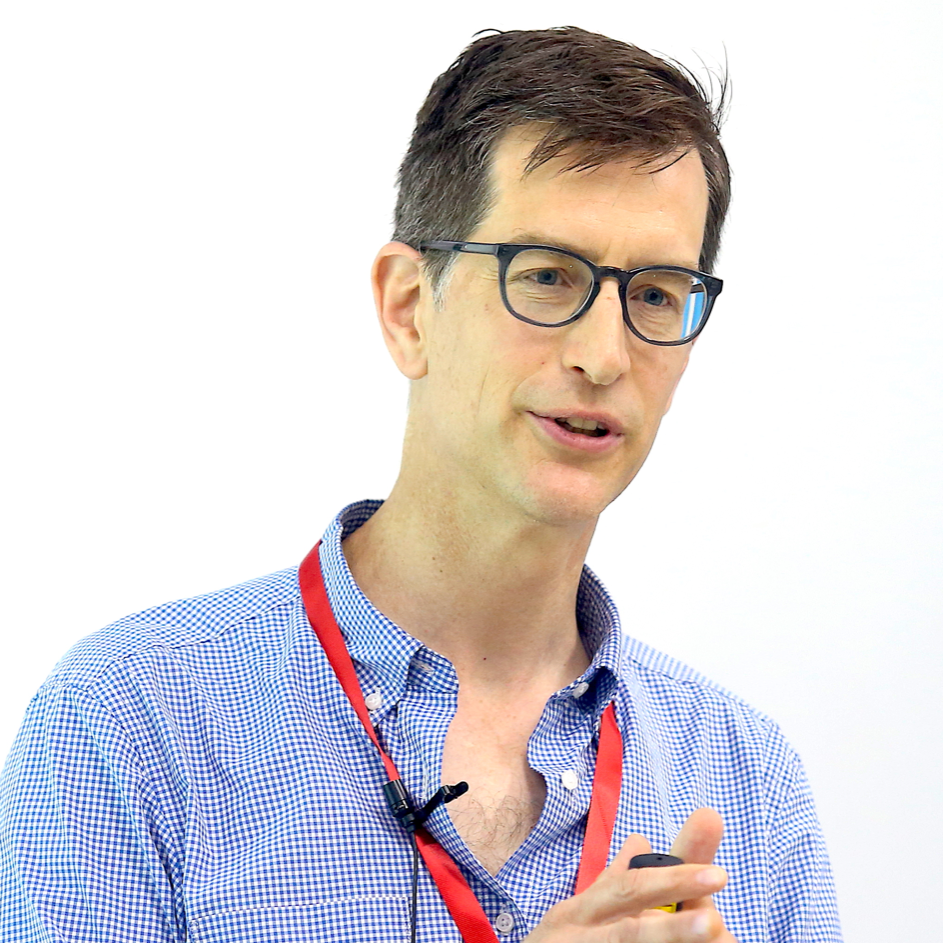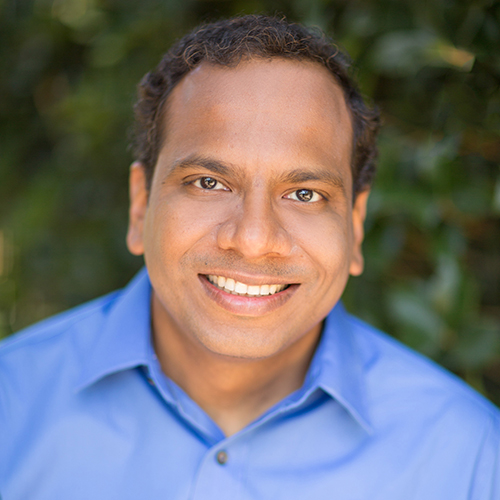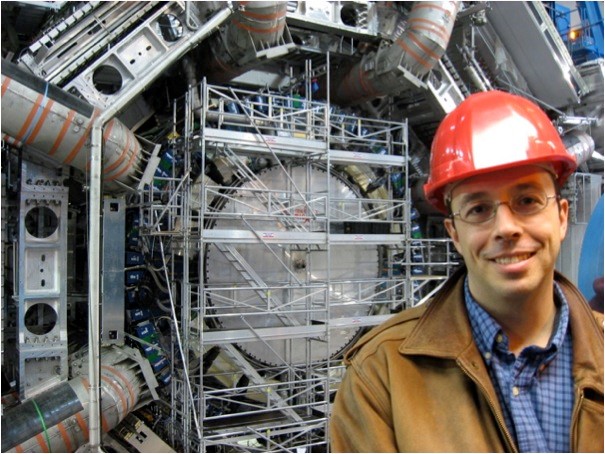July 13, 2020
New chairs have been appointed for three of EngSci’s majors, beginning their terms in July 2020. Professors Stark Draper (ECE), Ashish Khisti (ECE), and Pierre Savard (Physics) will lead the machine intelligence, electrical and computer engineering, and engineering physics majors, respectively.
We sat down with each to hear their thoughts on the coming year.
Machine Intelligence: Professor Stark Draper

Stark Draper’s research interests include information theory, optimization, error-correction coding, security, and the application of tools and perspectives from these fields in communications, computing, and learning. Before joining U of T’s Edward S. Rogers Sr. Department of Electrical & Computer Engineering (ECE) in 2013 he was a faculty member at UW Madison. Prof. Draper started his 2019-20 sabbatical year at the Chinese University of Hong Kong in Shenzhen and completed his sabbatical visiting the Canada-France-Hawaii Telescope (CFHT) in Hawaii, USA, after being caught outside of China by the coronavirus pandemic during the Lunar New Year’s holidays. He looks forward to returning to U of T to chair the third year of the machine intelligence major.
What do you hope students get out of the machine intelligence major? How does it fit into what’s going on in the world?
It seems that every day the applications of machine learning, artificial intelligence and data science expand. The core of this relatively new major provides three inter-locking components: deep mathematical underpinnings, strong software implementation skills, and exposure to a range of topics in the data and learning sciences.
Our hope is always that our students’ experiences at U of T prepare them not just to contribute to technological and social trends, but to drive them. This major, and EngSci broadly, focuses on fundamentals. From deep (and often tiring) experience wrestling with the concepts introduced in class, students internalize the ideas and insights that underlie current technologies. This allows them to understand the problems and challenges they face more holistically, helps them ask the right questions to cut through to better solutions, and aids them in engineering well thought-out, efficient, and robust designs.
Given the breadth of applications and the depth of interesting developments in theory and practice, I am excited to see where our students go and what challenges our first machine intelligence graduates take up in their next chapters. Further down the road I look forward to having those alumni back to campus sharing their stories and learnings with our current students.
Do you have any specific goals as chair of the major?
2020-2021will be the third year of the machine intelligence major, and our first students graduated last month. As we strive for continual improvement, this is a natural time to assess what is working well in our curriculum and extra-curriculars, e.g., how we connect students to PEY Co-op opportunities. My other immediate goal is to successfully transitioning my fall-term classes to online delivery during to the pandemic, as my students next term are likely to span some 16 time zones. I will miss the chalk board!
Electrical & Computer Engineering: Professor Ashish Khisti

Ashish Khisti (EngSci 0T2 Electrical) is an associate professor in U of T’s Edward S. Rogers Sr. Department of Electrical & Computer Engineering (ECE), and an EngSci alumnus. He holds a PhD from MIT, and focuses his research on communication systems and machine learning. His work involves developing fundamental performance limits of these systems and developing practical schemes that approach these theoretical limits.
How do you view the ECE major, or EngSci in general?
Engineering Science is one of the most rigorous and competitive engineering programs in Canada. Graduates from this program are highly respected and actively recruited by graduate schools and industry.
The ECE major develops a broad foundation in the field of electrical and computer engineering. It has a good mix of both fundamental and applied courses, and it appeals to both theoretically inclined as well as practically driven students.
What do you hope students get out of this major?
Students develop an understanding of both hardware and software systems that are relevant to today’s industry. Students from this major are actively recruited by a variety of industries including computer hardware/software, communication systems, digital electronics, power systems, data science etc. Many students go on to do graduate studies and specialize in a specific area of their interest.
How do you view your role as chair of the major?
As the ECE major is designed to provide a broad foundation, I am most happy to provide guidance on course selections in this major based on students’ interests and future career plans.
Engineering Physics: Professor Pierre Savard

Pierre Savard is a professor in U of T’s Department of Physics, TRIUMF Scientist, and Canada Research Chair in Experimental Particle Physics. He is also a member of the ATLAS Experiment at CERN. In the last decade the focus of his research has been on Higgs boson physics and the search for new phenomena beyond the Standard Model of particle physics.
What are your thoughts on the engineering physics major and the EngSci program?
I believe EngSci offers an outstanding program that provides a strong foundation in the sciences and uniquely prepares its graduates for the challenges of a rapidly evolving technological future.
The engineering physics major provides a high degree of flexibility in terms of course selection. The variety of careers chosen by our graduates (chemical engineering, electrical engineering, geophysics, business, pure mathematics, and of course physics) demonstrates that choosing this major keeps students’ options open in terms of future careers.
What do you hope students get out of the major? How does it prepare them for today’s challenges?
This major provides a strong foundation in physics, applied physics, and mathematics in addition to engineering that provides them with the maximum flexibility in the future. Given the fast pace of technological innovations, having the skill sets needed to change, adapt, and evolve during one’s working life is a great asset.
Do you have any specific goals as chair of the major?
I have been chair of this major in the past and I’m very happy to be in this role again. I look forward to talking to what I consider to be the strongest students I’ve had the privilege to interact with during my career. My past and present goal is to make sure that the program continues to maintain its commitment to a strong foundation in science and continues to attract the best students in Canada and abroad.
We would like to thank the outgoing chairs of the majors for their service: Ashish Khisti (ECE) for machine intelligence, David Bailey (Physics) for engineering physics, and Tony Chan Carusone (ECE) for electrical and computer engineering.
Continuing on in their roles as chairs of the EngSci majors are: Peter Grant (UTIAS) for aerospace engineering; Rodrigo Fernandez-Gonzalez (IBBME) for biomedical systems engineering; Aimy Bazylak (MIE) for energy systems engineering; Roy Kwon (MIE) for engineering mathematics, statistics and finance; Matthew Roorda, Evan Bentz and Michael Collins for infrastructure engineering; and Tim Barfoot (UTIAS) for robotics engineering.